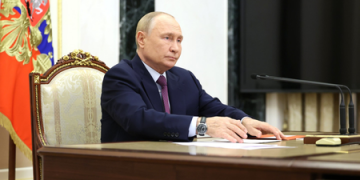Global current account imbalances are often at the forefront of policy debates. For the last few years, the International Monetary Fund (IMF) has produced an annual report on the evolution of global external imbalances of 29 systemically significant economies.
Results for 2015 (IMF report 2016) showed a moderate increase of global imbalances, which had lessened and stabilised in the aftermath of the global financial crisis.
Global imbalance refers to the situation where some countries have more savings or assets than other countries. The pattern of large, persistent current-account deficits in the US and Britain and some other rich economies, matched by surpluses in emerging economies, notably China, are major causes of the global imbalances.
Prior to the financial crisis, many economists used to fret about global imbalances. Usually surpluses in some countries offset deficits in others. But when the imbalance grows, it becomes a problem.
In the early 1990s, surpluses and deficits were each about 0.5 per cent of the global GDP. They expanded rapidly to about 2 per cent of global GDP on the eve of the global crisis. But after shrinking dramatically during the crisis and global recession, imbalances have started rebounding and are back to about 1.5 per cent of GDP.
In 2007, that is, ahead of the global crisis, the US had huge current account deficit as reflected in investment rate of 19.6 per cent and savings rate of only 14.6 per cent of the GDP. By contrast, China had a fixed investment rate of 41.7 per cent of GDP and a savings rate of 51.9 per cent reflecting a large current account surplus.
The present trend is similar as US savings rate is back to the pre-crisis level of 18 per cent of GDP, whereas investment rate is around 20 per cent of GDP reflecting huge current account deficit. China’s savings rate is around 49 per cent, with investment rate revolving around 43.33 per cent of GDP, reflecting huge current account surplus.
It is apprehended that the pre-crisis scourge of global imbalance is back with the US running massive current account deficit and China having huge current account surpluses. A similar trend was experienced prior to the global financial crisis. It may lead to a debt–fuelled investment boom in the US, which is a sign of unsustainable features fraught with big risk to the global economy.
Here the following questions arise: Why are the Western media and US economists dubbing the rise of savings in emerging economies as a threat to the global economy? Why are they blaming emerging economies such as China for accumulating colossal savings instead of blaming the US and advanced countries for their debt-fuelled investment and living beyond means?
This might hide an evil design to shift the blame for the ills facing the global economy to emerging economies. After the global crisis, a similar effort was made to shift the blame on emerging economies.
It is known that greed, unethical practices and incompetence of corporates, failure to heed to the risks facing their institutions, reckless lending by bank bosses, ineffective financial regulation and supervision, inefficacy of the government in taming big firms and pursuit of ultra low interest to stimulate consumption-led growth, and soaring house prices were among the factors that contributed to the meltdown.
Unfortunately, renowned economists and policymakers of the US such as Ben Bernanke and Paul Krugman have singled out global imbalances as a key factor contributing to the turmoil to divert attention from the root causes such as the lack of restraint among financial institutions in creating credit on a global basis.
Bernanke had blamed “global savings glut” led by Asia for the global crisis of 2008. Their arguments used to bolster the theory were: # net capital flows from current-account surplus countries such as China to deficit nations such as the US helped finance credit booms there; # a rise in savings relative to investment in surplus countries such as China depressed world interest rates, particularly those on dollar assets. Much of the surpluses were invested in these.
In reality, rise in savings in Asia and global imbalances had nothing to do with the meltdown or the unusually low interest rates globally which preceded it. Bernanke’s thesis muddles the national accounts concept of “savings” with the cash flow concept of “financing”.
A person’s ability to spend is not constrained by their savings, but by the access they have to finance. Savings cannot explain movements in market interest rates. It is the policies of central banks that determine interest rates. The US deliberately kept interests low to stimulate consumption led growth.
Savings glut is an incomplete explanation of low interest rates as advocated by Bernanke or Krugman. The grim reality is that unlike other countries, the US has the luxury of attracting a disproportionate share of savings of other countries owing to the sophistication its financial markets and technology have achieved, and the status of its dollar reserves.
This has enabled the US to prosper without generating internal resources and adopting a debt–fuelled investment boom that has caused many a world crises.
The author is an Orissa-based financial columnist.








































